When They Were Boys (35 page)
Read When They Were Boys Online
Authors: Larry Kane

For the Beatles, Rory Storm was a model for success. They were addicted to success, and not shy about learning. The sometimes inhibited boys learned so much about stage presence from Storm. After all, they played on the same programs from Liverpool to Germany over a period of three and a half years.
Was Rory Storm bitter over his mentoring of Johnny's boys? “You never saw bitterness,” says Jim Turner.
Bill Harry says that Storm was touched that the Beatles, wanting to return the favor, convinced Brian Epstein to produce Rory's rendering of the song “America” from Leonard Bernstein's
West Side Story
. The record was released with little success.
The Beatles felt close spiritually and professionally to Rory. They watched his stage antics, helping them emerge as more raw, taking more risks. They enjoyed his camaraderie, his daring, his loyalty. They played so much with Rory Storm and the Hurricanes that John and Paul became friends with and admired the band's drummer, Ringo Starr, the erstwhile Richie Starkey. Even Pete Best enjoyed Ringo's company, to a point.
For the man, the performer, the blessings of his earlier career were in marked contrast to his later pursuits. As the Beatles soared, Storm, whose earlier band was called the Raging Texans, began a decline. After the death of a band member, the Hurricanes were disbanded in 1967. Storm took on deejay work, and eventually taught and hosted dance parties in Jersey and Amsterdam.
Then Storm's father died, prompting a return to his mother.
September 1972 was not a good month, as Storm was experiencing a severe chest infection. On most nights, to get through the night, he would take sleeping medication, and a touch of scotch. One morning his mother found him dead. The bodies of both Storm and his mother were found on September 28. Police ruled his death an accident. But speculation remained that his mother took her own life after finding him, although that has never been proven.
The funeral cortege occurred on October 19, the two caskets side by side, the exâband members playing as his friends sang his favorite song, “You'll Never Walk Alone.”
Ringo Starr did not attend, later saying, in the sardonic Liverpool style of dark humor, “I wasn't there when he was born, either.”
Ringo's quote should be taken with a grain of salt. He did everything possible to arrange recording work, and sessions, for Storm, but Storm declined. Too proud? No. Content in his early success? No doubt.
Going through notes of my earliest contact with Ringo Starr, I had asked in 1965 who his greatest influences were. He said, “There were someâHank Williams, and of course, Buddy Holly. And there was a guy named Rory. He's still around.”
But, as it turned out, not for long.
His closest friends in this era tell me that today, when he tells the sad story of Rory Storm, Ringo's eyes turn moist.
And it was indeed Storm's decision to play all summer at Butlin's summer camp in 1960 that convinced Allan Williams it was time to take the young Beatles to Germany. It didn't change the course for Storm; he later played on to success in Hamburg. But it began an uncertain journey for the boys, including the chance to watch the young star, up close and personal, and learn his almost magical command of the stage and the audience.
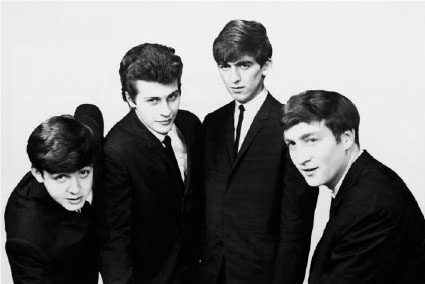
The early Beatles in a Liverpool studio in March 1962, five months before drummer Pete Best (second from left) faces the unthinkable.
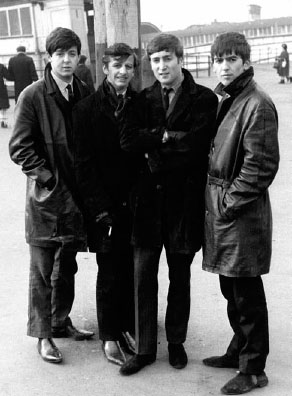
The “boys,” now with Ringo Starr as drummer, on a Liverpool street in February 1963.
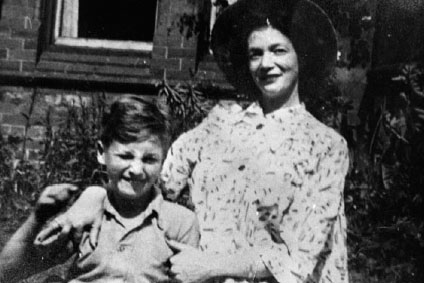
John Lennon with mother Julia outside of Mendipsâthe home of Julia's sister, Mimiâa residence he called home until early adulthood.
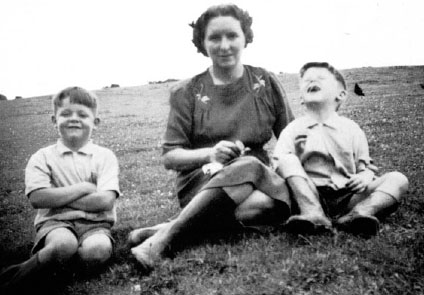
Mary McCartney with sons Paul (left) and Michael. Along with father James, the McCartneys rose from humble roots to join the middle class.
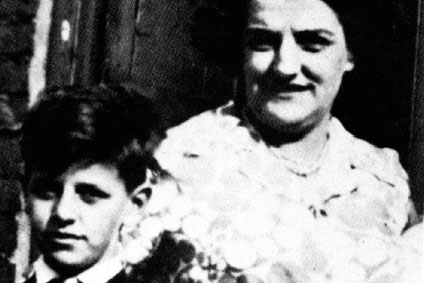
Richard Starkey (a.k.a. Ringo Starr) with mother Elsie, at home in the late 1940s. Elsie worked long hours to support her sickly son.
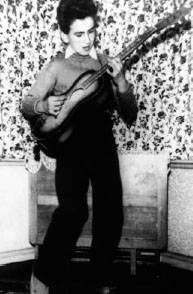
Twelve-year-old George Harrison with his favorite companion, the guitar, at home in Liverpool in 1955.
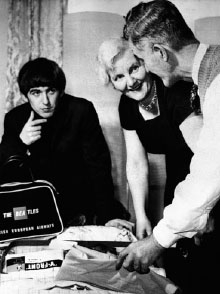
Proud parents Harry and Louise Harrison help George pack for the Beatles' first trip to America in February 1964.
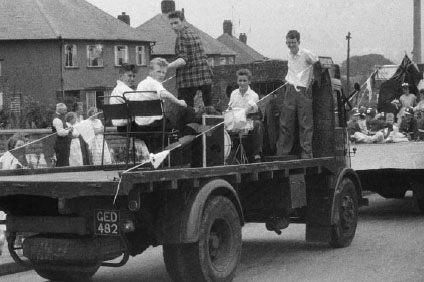
John Lennon's first band, the Quarrymen, in the St. Peter's Church Rose Queen procession, July 6, 1957, the day of the historic first meeting between John and Paul.
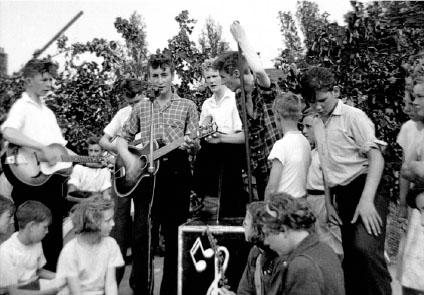
Later that day, John leads the Quarrymen onstage at the Rose Queen festival. (L-R) Eric Griffiths, Colin Hanton, Rod Davis, John Lennon, Pete Shotton, Len Garry.
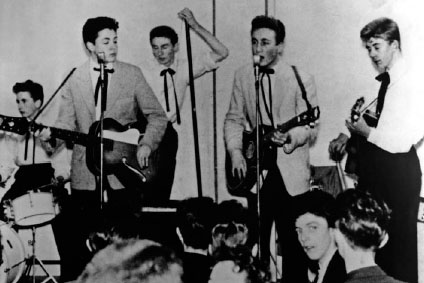
Paul McCartney (second from left) is photographed for the first time with the Quarrymen, performing at the New Clubmoor Hall in Liverpool, November 1957.